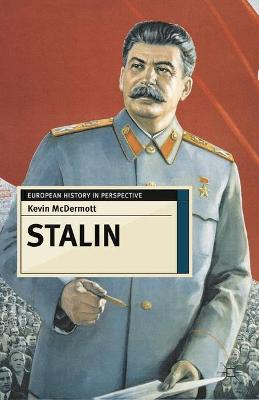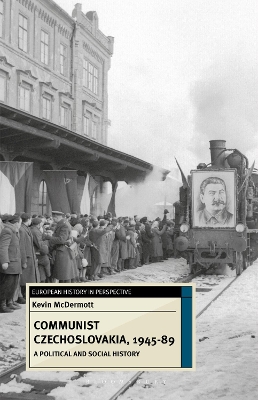European History in Perspective
2 total works
Stalin's massive impact on Soviet history is often explained in terms of his inherent evil, personality defects and power lust. While not rejecting these notions, Kevin McDermott argues that Stalin's thoughts and actions are best contextualised in the inter-relationship between war and revolution in the first half of the twentieth century. The author presents the case for taking the Soviet dictator seriously as a Marxist revolutionary whose fundamental beliefs and modus operandi were forged in the cauldron of civil and international wars, ideologically driven class wars and revolutionary upheavals associated with the 'age of catastrophe', 1914-45. Only by so doing can the complex motivations for such cataclysmic events as the Great Terror be adequately addressed.
Incorporating recently declassified materials from the former Soviet Party archives, this new appraisal of Stalin also provides a critical review of the latest western and Russian historiography. It is essential reading for anyone studying the debates on one of the leading figures of Soviet history.
Incorporating recently declassified materials from the former Soviet Party archives, this new appraisal of Stalin also provides a critical review of the latest western and Russian historiography. It is essential reading for anyone studying the debates on one of the leading figures of Soviet history.
Few Europeans in the twentieth century have been subject to the repeated buffetings by foreign powers, ideologically driven transformations and internal upheaval of the Czechs and the Slovaks. The period of Communist rule was complex, and those who gleefully overthrew the regime in 1989 were the very grandchildren of those who had voted for Communism with hope in the free elections of 1946.
This concise account includes both political and social history, analysing half a century of Communism from at all strata of society. Kevin McDermott is equally intrigued by those in power and ordinary citizens, asking what motivates a young Czech worker-believer to join the Communist Party in the early 1950s, enrol in the People's Militia and remain in the party during the dark years of 'normalisation', yet end up welcoming the tearing down of the Berlin Wall in 1989.
Using Czech and Slovak archival sources and the most recent historiography, McDermott challenges the still dominant 'totalitarian' paradigm and argues that the forty year communist experience in Czechoslovakia cannot simply be dismissed as a Soviet-imposed aberration.
This concise account includes both political and social history, analysing half a century of Communism from at all strata of society. Kevin McDermott is equally intrigued by those in power and ordinary citizens, asking what motivates a young Czech worker-believer to join the Communist Party in the early 1950s, enrol in the People's Militia and remain in the party during the dark years of 'normalisation', yet end up welcoming the tearing down of the Berlin Wall in 1989.
Using Czech and Slovak archival sources and the most recent historiography, McDermott challenges the still dominant 'totalitarian' paradigm and argues that the forty year communist experience in Czechoslovakia cannot simply be dismissed as a Soviet-imposed aberration.

